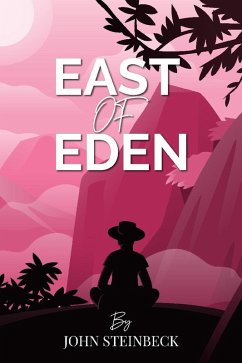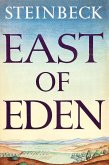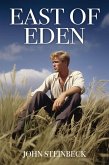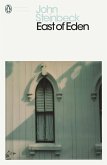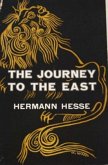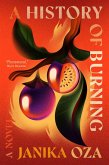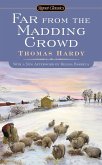East of Eden by John Steinbeck is a sweeping novel that intertwines the lives of two families, the Trasks and the Hamiltons, over multiple generations in California's Salinas Valley. The story explores complex themes of good and evil, free will, and the struggle for identity and redemption. The narrative primarily follows the Trask family, beginning with Adam Trask, who moves to California after a tumultuous relationship with his half-brother, Charles. Adam marries the enigmatic and morally corrupt Cathy Ames, who later abandons him and their twin sons, Caleb ("e;Cal"e;) and Aron. Cathy becomes a brothel owner, embodying the novel's exploration of inherent evil. The Hamilton family, particularly Samuel Hamilton and his daughter, Liza, provide a counterpoint with their integrity and moral strength. Samuel becomes a close friend to Adam Trask, helping him through his struggles. As the story progresses, the focus shifts to the next generation, particularly the contrasting paths of Cal and Aron. Cal, feeling overshadowed by his idealized brother Aron, grapples with feelings of guilt and a desire for his father's approval. The novel culminates in Cal's ultimate struggle with his own nature and the choices he makes, echoing the biblical story of Cain and Abel.
Dieser Download kann aus rechtlichen Gründen nur mit Rechnungsadresse in A, B, BG, CY, CZ, D, DK, EW, E, FIN, F, GR, HR, H, IRL, I, LT, L, LR, M, NL, PL, P, R, S, SLO, SK ausgeliefert werden.

